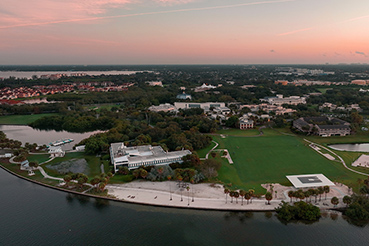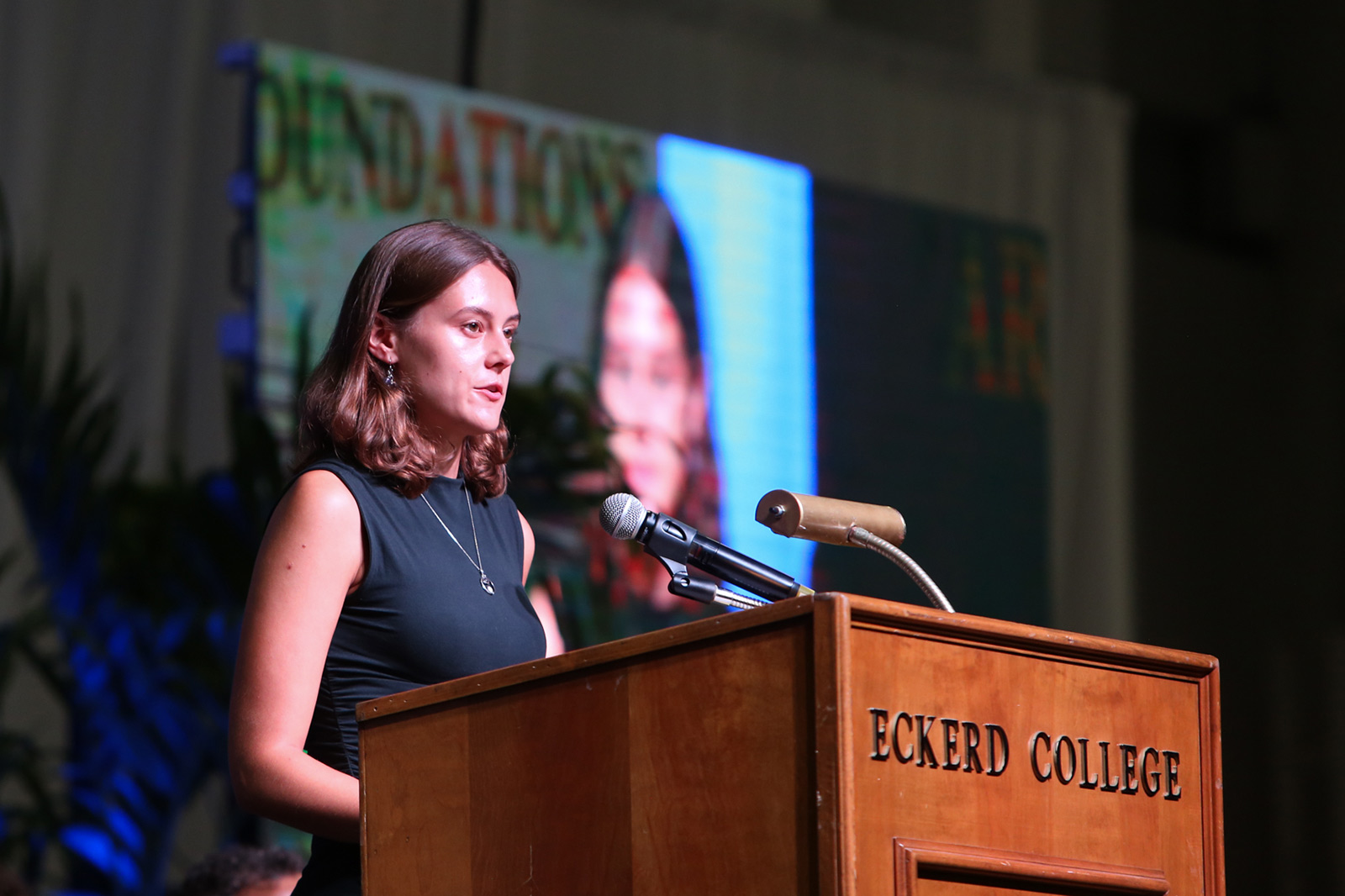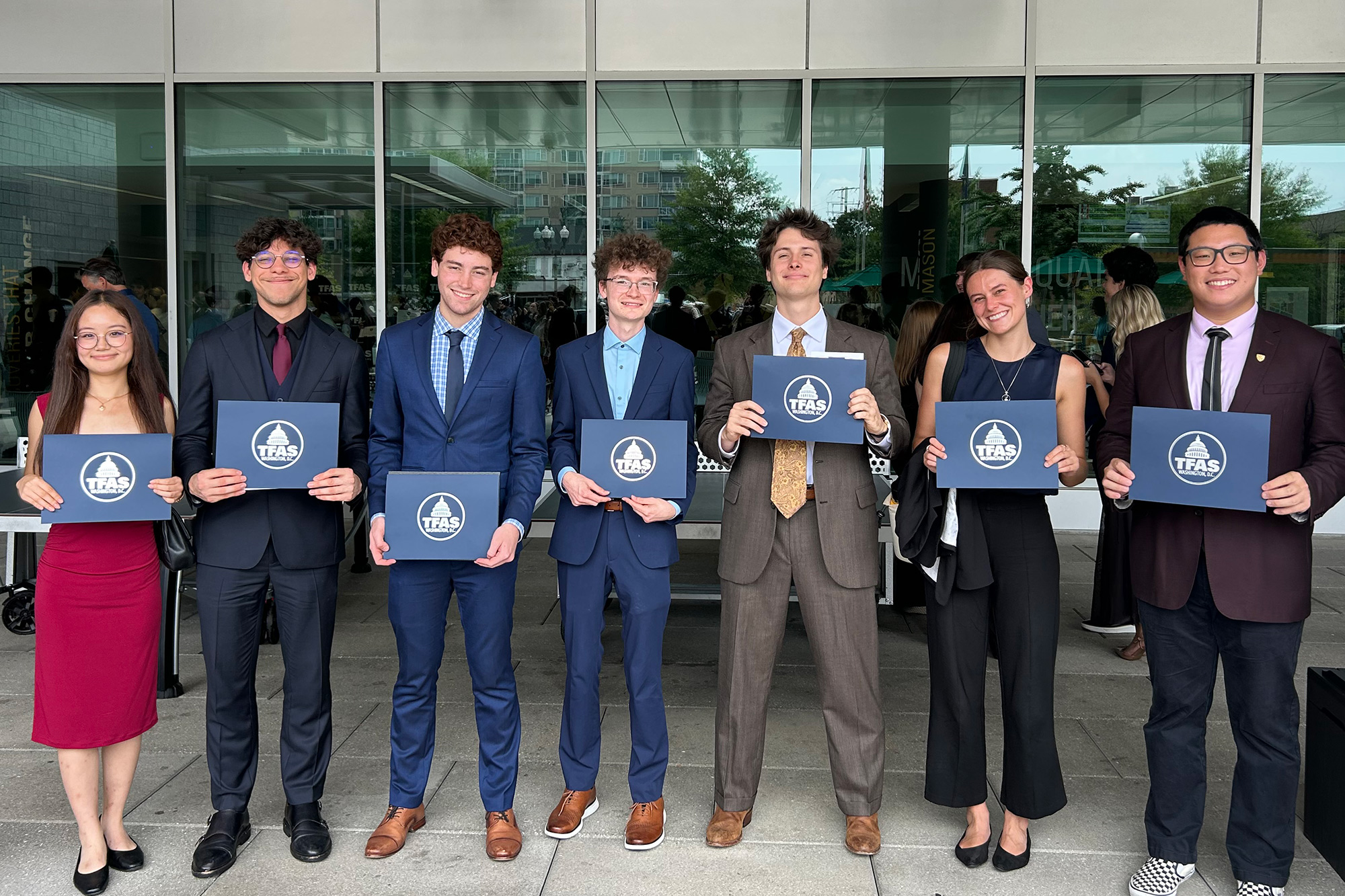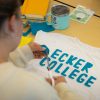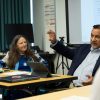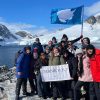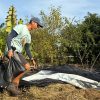In what little free time she had, Emma Kelliher spent the last few weeks of the 2025 spring semester at Eckerd College making plans and reaching out to dozens of people as she prepared to step into her role as incoming president of the Eckerd College Organization of Students—the voice and action of students at the College.
Her primary goal, she says, sounds easy but isn’t: to make sure students know what ECOS does and how they can get involved. “We need to get more people engaged,” explains Emma, a senior literature and political science student from Lakeville, Massachusetts. “But first we have to figure out what we as an organization need to do better, and how to address the problem in new and different ways. We want to get people passionate about their participation in student government. ECOS is just so powerful on our campus, and we have a lot of say in what happens.”
But first Emma had to take a little trip. One that has nothing to do with ECOS. Or maybe it does.
With help from Kat Robinson, Ph.D., associate dean of faculty for student success at Eckerd, Emma stitched together funding from three different sources to take part in an eight-week internship at a public policy think tank based in Arlington, Virginia. Starting June 1, Emma interned with the nonprofit Alliance for Innovation and Infrastructure. The group’s aim, according to its website, is to “advance innovation in industry and public policy to improve the safety, efficiency and resilience of America’s infrastructure.”
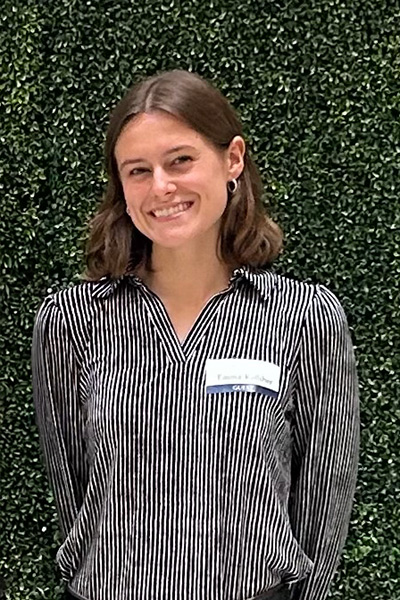
Senior Emma Kelliher was elected ECOS President in April.
The funding sources Emma used were Eckerd’s Academic Internship Fund; the College’s Eastman Citizenship and Leadership Program; and The Fund for American Studies, a 501(c)3 nonprofit educational organization based in Washington, D.C.
Emma, who lived in a dormitory at George Washington University and attended a class at George Mason University in nearby Fairfax, Virginia, also was guided by several of her Eckerd professors—including Allison Quatrini, Ph.D., associate professor of political science. Quatrini had earned her doctorate at George Washington University. “Internships in D.C. are so competitive,” Emma says, “and Dr. Quatrini was a huge help.
“My dream career is working with climate legislation to help create laws that protect the environment,” Emma adds. “As a public policy intern, I’ll be writing papers and briefs and blogs. And I choose the topic. I can focus on energy policies, how we can make greener solutions … and the work is published under my name. I’m very excited to have this opportunity.
“While infrastructure politics might not directly relate to student government, I think the communication piece definitely does. Writing blog posts and experimenting with other communication methods will definitely help me in my future work. I’ll need to be able to explain how different policies or components of an infrastructure issue work, and propose concrete solutions. I think both explaining the inner workings of a topic and being able to research and communicate solutions are skills I’ll definitely need working in student government.”
When Emma returned to campus in August, she planned to put what she’s learned to good use. “I want students to know their voices matter,” she says, “and that ECOS has the tools to help them, whatever the topic. I’d like to have more town halls and send out surveys to students that have incentives. Like if you answer the survey, you could win $50.
“A lot of students don’t know about the work ECOS does. It’s such an amazing opportunity, one that not a lot of other colleges and universities offer students.”
Emma adds that she considered transferring from Eckerd during her first year there. She was homesick and says she “felt all over the place.” But then she got involved. She became a dorm senator, an Eastman Leader, a library work scholar and the ECOS vice president of financial affairs.
“I felt like I was really helping people around me, like I was making a difference,” she says. “Once I started working in student government, I found something. [Back in May] I went to a Board of Trustees meeting. It’s such a privilege that we have a student representative at one of the most important meetings the College has.”
About 130 Eckerd students took advantage of a Summer 2025 academic internship, either through regular courses or the College’s Independent Academic Internship Agreement. Alumna Maddy Nelson ’21 is the Career Center’s employer relations and internships coordinator.
While internships aren’t required for all majors, the Career Center recommends students pursue these experiential learning opportunities. “We encourage students to start in Autumn Term, so they may explore as many of these experiences as they want,” Nelson says. “We’re here for them from the beginning.”
Eckerd partners with organizations such as Tampa Bay Watch, Pinellas County Government, the United States Geological Survey, Mote Marine Laboratory and The Children’s Dream Fund. Nelson prefers interns to be paid and often works with employers to encourage them to offer compensation to ensure all students have equal access to the opportunities.
Thanks to the generosity of Eckerd alumni, family, faculty, staff and friends, an endowment has been created that helps fund unpaid or underfunded academic internships. The Academic Internship Fund, managed by Nelson and Robinson, could provide a student up to $3,500 to cover the costs of an internship. In addition, Eckerd Sponsored Housing allows students to stay on campus during the summer months for a small maintenance fee. Not a bad summer gig on a beachfront campus.

